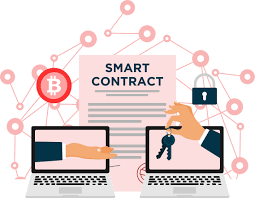Tokenization, a groundbreaking technology that has transformed the world of finance, relies heavily on smart contracts. These self-executing and self-enforcing digital contracts automate, validate, and execute transactions, underpinning the seamless and secure transfer of digital assets.
Smart Contract Development Agreements have become integral in tokenization, serving as essential legal contracts that define the terms, responsibilities, and expectations related to the creation and deployment of smart contracts.
In this article, we will delve into the concept of a Smart Contract Development Agreement, its significance, and its role in shaping the digital landscape of tokenization.
Defining a Smart Contract Development Agreement
A Smart Contract Development Agreement is a legally binding contract that outlines the terms, conditions, and expectations between the party requesting the development of a smart contract (the “Client”) and the party responsible for creating and deploying it (the “Developer”).
These agreements serve to define the scope of work, project timelines, compensation, and intellectual property rights related to the smart contract development process.
Key Components of a Smart Contract Development Agreement
- Parties and Recitals:
- The agreement commences by identifying the Client and the Developer, including their respective roles and responsibilities. The recitals section provides context and background information about the smart contract development project.
- Scope of Work:
- Outlines the specific tasks, functionalities, and features that the smart contract is expected to deliver. This section may include technical specifications, the tokenization process, and security measures.
- Development Timeline:
- Specifies the project schedule, including milestones, deadlines, and key deliverables, ensuring that both parties have a clear understanding of the development timeline.
- Compensation and Payment Terms:
- Details the compensation structure, payment milestones, and any additional costs involved in the development process.
- Intellectual Property Rights:
- Addresses the ownership and licensing of the smart contract’s intellectual property, including any code, design, or algorithms produced during development.
- Testing and Acceptance:
- Outlines the criteria and procedures for testing, quality assurance, and the acceptance of the smart contract.
- Maintenance and Support:
- Specifies whether the Developer is responsible for ongoing maintenance and support, as well as the terms and conditions associated with these services.
- Termination and Exit Strategy:
- Defines the conditions and procedures for terminating the agreement and transferring responsibilities to another developer if necessary.
Significance of Smart Contract Development Agreements in Tokenization
- Clarity and Accountability: These agreements provide clarity regarding project expectations and hold the Developer accountable for delivering a functional and secure smart contract.
- Intellectual Property Protection: They help safeguard intellectual property rights, ensuring that the Client retains the necessary ownership and licenses for the smart contract.
- Legal Framework: By establishing the legal framework for smart contract development, these agreements protect both parties in the event of disputes, non-performance, or unexpected challenges.
Benefits of Smart Contract Development Agreements in Tokenization
- Quality Assurance: These agreements promote the creation of high-quality smart contracts, reducing the likelihood of vulnerabilities and errors.
- Protection of Interests: Smart Contract Development Agreements protect the interests of both Clients and Developers by setting clear expectations and legal protections.
- Risk Mitigation: They mitigate risks associated with smart contract development, ensuring that projects are completed efficiently and securely.
- Legal Clarity: In the event of disputes, these agreements provide a structured mechanism for resolving issues, reducing the potential for disputes and disruptions.
Conclusion
Smart Contract Development Agreements are integral in the tokenization industry, providing a structured legal framework for the creation of secure and reliable smart contracts. In a rapidly evolving digital economy, understanding and implementing these agreements are essential for all parties involved.
These agreements not only promote quality and accountability in smart contract development but also provide the legal clarity and protections required to navigate the complexities of tokenization.




